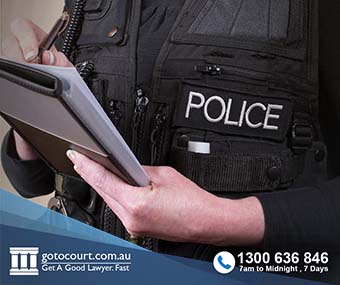Personal Reference: What to include
If you have been found guilty of a criminal offence, you may want to provide the court with character references as part of your plea in mitigation. A personal reference gives the court information about the sort of person you are and any particular achievements, contributions to society or positive characteristics you have that might persuade the court to deal with you more leniently. If you have a strong work history or academic record, references will be of particular assistance to highlight your good qualities and potential as a law-abiding citizen.
Who should I ask for a personal reference?
The best people to get personal references from are people you have known in a professional or academic capacity. This may include a current or former employer, colleagues, teachers, lecturers or fellow students. It is also permitted to hand up personal references written by friends or family members, but this is less helpful and should only be done if the person has some particular insight into your circumstances. For example, a reference written by your sister saying that you are a good person will be of little help to the court. However, a reference from your sister saying that she has personally witnessed your struggle with drug addiction and your attempts to overcome it, will be of some assistance.
What should the personal reference include?
Each reference that you hand up to the court MUST:
- Be addressed to the court;
- Be signed and dated;
- Include an explanation of what capacity the writer knows you in eg. are they your boss, colleague, neighbour, etc;
- Include how long they have known you and what they think of you eg. Have they found you to be a reliable employee, a hard worker, an honest person?;
- Include a statement that the writer knows the nature of the criminal charges you are being sentenced for. This should be as specific as possible. Ideally, the writer will name the actual charge eg ‘I give this reference knowing that he is to about to be sentenced for two counts of obtaining property by deception…’
Ideally, each reference should also:
- Give details about your positive character traits;
- Give details of specific things you have done that are evidence of these traits;
- Give details of any of your specific circumstances that the writer knows about. For example, if you or your lawyer has told the court that the offence came about as the result of a drug problem, it would be helpful to hand up references from people who know about your drug problem and can attest to what steps you have taken to address it;
- State that the writer is aware of your previous criminal history (if any);
- Give details of any other information the writer knows and which is to be taken into account at sentencing. For example, if a psychological report has been prepared for the court and the writer has read the report, they should include a statement like ‘I have read the psychological report prepared by —– and dated —-…’ so that the court knows that the writer is well informed about your circumstances and the circumstances of the offence.
If you seek to rely on a reference written by a person who does not mention the offences and which is not addressed to the court, it will be given very little weight. This is because the court does not know whether the writer would still be giving the reference if he or she knew about the trouble you are in. A reference that states that the writer knows about the charges shows that they maintain their good opinion of you despite the trouble you are in. If you have a previous criminal history, it is a good idea to get the writer to make it clear that they know about this as well.
If you provide a reference that does not state in what capacity the writer knows you or how long they have known you, this makes it difficult for the court to put the reference into context. This also makes it hard for the court to give the reference much weight.
A personal reference should NOT:
- Tell the court what punishment to give you (or not to give you);
- Tell the court that you are not fully responsible for your actions;
- Include anything that is inconsistent with what you or your lawyer has told the court about your circumstances or the circumstances of the offence.
Does the writer need to come to court?
If the prosecution agrees to the reference being handed up in court, there is no reason that the writer will need to attend court. However, if the prosecution takes issue with any of the contents of the reference, they may want to cross-examine the writer. This may be because some of the things they say are in dispute or something is unclear and requires further explanation.
It’s always a good idea to check with the prosecution ahead of time as to whether they will require any of your character witnesses for cross-examination.
If you require advice or representation in relation to a criminal offence, please contact GO To Court Lawyers.







